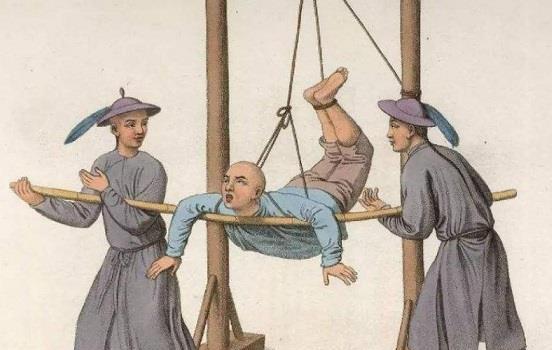As an important part of China's ancient political system, China's ancient legal system has a long history of development. In the nearly five thousand years from the Xia Shang Zhou to the Ming and Qing dynasties, with the evolution of the times, China's feudal dynasties gradually formed a set of legal systems with rich content and distinctive characteristics.

Punishment is an important means of exercising the law. China's ancient penal system has also developed and changed with the times. During the Xia Dynasty, the five punishment systems of ink, sword, sword, palace, and dapu had been gradually established. Later, through the Shang Dynasty, the Western Zhou Dynasty, the Spring and Autumn Warring States, the punishment system of the entire slave society was mainly based on five punishments, and the punishment was mostly harsh.
During the period of feudal history, the penal system underwent great changes, and although there was still some torture, it generally tended to be lenient and the types of punishment gradually increased. Among the many punishments, the death penalty is undoubtedly the most severe. In ancient China, there were many ways to punish criminals on the death penalty, such as the well-known car crack, lingchi, waist beheading, hanging, beheading and so on.
With the progress of society and the improvement of civilization, the rulers also made changes to punishment, and some cruel punishments were abolished. At the same time, under the influence of the Confucian idea of benevolent rule, the punishment of the feudal dynasty began to pay attention to the "combination of etiquette and law". In the laws of some dynasties, "etiquette" also occupies a very important position. The so-called "for the government first, etiquette for the government." In terms of punishment, the rulers advocated "virtue and punishment" and "both ritual and punishment". For example, the "autumn and winter executions" that began to be implemented since the Han Dynasty were mainly aimed at first virtue and then punishment, and could not be tortured and killed in the spring and summer.
It may be difficult for everyone to imagine that in the feudal period of bloody torture, it was necessary to pay attention to "prudent punishment and cautious killing", and only for some extremely vicious criminals, the death penalty would be used. At the same time, for some death row prisoners, in some aspects, humanistic care is also reflected. Generally speaking, before the death row inmate leaves, the jailer will prepare a table of good wine and good dishes for the criminal to eat and drink, and even arrange for the criminal to meet with his relatives and make a deathbed farewell.
In addition, in some ancient dynasties of our country, the system of "listening to the wife and going to prison" was also allowed for death row prisoners. The so-called system of listening to wives and going to prison is the system in ancient times in which some case-handling officials allowed married death row prisoners to live with their wives in prison out of sympathy and concern for criminals, and the reasons for implementing this system are also very realistic.
The system of listening to wives and imprisoning first appeared in the Eastern Han Dynasty, and was also adopted in some later dynasties. In the ancient social environment where filial piety was the first, "filial piety has three, and no queen is greater." Some death row inmates, on the other hand, have committed heinous crimes in their youth and face the harshest punishment. In this way, a family may have no heirs.
As a result, officials often allowed their wives to live with criminals in prisons for married death row inmates before executing them. Although this will not change the fate of prisoners who are about to be executed, it can alleviate the pain of the loss of their loved ones to a certain extent.
It is also for such a practical reason that even the most vicious people, ancient government officials will take into account the human concern for death row prisoners. In fact, in addition to these, in some feudal dynasties, death row inmates had other pre-execution "powers", such as meeting with friends and relatives and leaving a will. All crimes and executions should also be made public to the world in the form of a readout.
After the execution, the body of the criminal will also be returned to the family, and he will be brought back for burial and buried.
The system of listening to wives and imprisoning is a trace of humanity and civilization that emerged in ancient times with strict laws, and it is also a prescription for rulers to achieve a balance between punishment and benevolence. Under such a system, it not only reflects the deterrent effect of legal punishment on criminal acts, but also shows the political attitude of the ruler to exert benevolence.